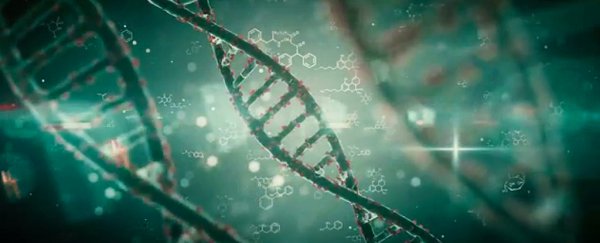Our first few years of life play a crucial role in our brain's wiring. New research suggests our experiences might also be influencing changes in our neurons at a genetic level.
A 2018 study has discovered that when mice pups are neglected by their mother, it appears to trigger 'jumping' genes in their brain cells. This hints at similar processes in humans that could help explain the development of certain neurological disorders.
The ability for certain genes to copy themselves and migrate from one section to another is far from unknown. In fact, we've been studying them for more than half a century.
These sections of code – called transposons – can produce a mosaic of neighbouring cells that technically have slightly different genetic maps, even though they belong to the same individual.
"We are taught that our DNA is something stable and unchanging which makes us who we are, but in reality it's much more dynamic," explained geneticist Fred "Rusty" Gage from the Salk Institute in California.
"It turns out there are genes in your cells that are capable of copying themselves and moving around, which means that, in some ways, your DNA does change."
The fact this happens in brain cells as they grow and divide is also well established. Sequences called long interspersed nuclear elements (LINEs) were seen changing positions in dividing hippocampus cells taken from rats more than a decade ago.
In recent years, a significant amount of attention has been devoted to understanding how external 'epigenetic' changes to our DNA can be the result of environmental conditions.
Some have even been considered as contributing factors behind the development of neurological conditions such as autism spectrum disorder.
But the effect of the environment on the transposons hasn't been so scrutinised, possibly because we assume the genes we inherit simply don't change their code all that easily.
"While we've known for a while that cells can acquire changes to their DNA, it's been speculated that maybe it's not a random process," said the study's first author Tracy Bedrosian.
"Maybe there are factors in the brain or in the environment that cause changes to happen more or less frequently."
So together with two other researchers, Bedrosian and Gage investigated how a sequence called a LINE-1 retrotransposon copied and relocated itself in the dividing hippocampus cells of mice pups.
Specifically, they paid close attention to whether the pups' environment made much of a difference to this gene-jumping process.
Rather than create a hostile environment for a sample of the young mice, the researchers watched how mothers raised their offspring over a period of two weeks.
They were then divided into groups based on how the mothers cared for their brood, detailing how they licked them, carried them around, nursed, and rested.
On analysing the hippocampus cells of the mice pups, they found a clear relationship between the kinds of care they received and the number of copies of LINE-1. The worse the care, the more times the gene copied itself and relocated.
Oddly, this didn't occur for other types of transposon the researchers analysed, suggesting it was something specific to this sequence.
On closer inspection, they found epigenetic factors were primarily responsible. Unlike other transposons, copies of LINE-1 were tagged less with a methyl group, the signature of an epigenetic edit.
"This finding agrees with studies of childhood neglect that also show altered patterns of DNA methylation for other genes," said Gage.
"That's a hopeful thing, because once you understand a mechanism, you can begin to develop strategies for intervention."
You can watch Gage dig into even more research details in the video clip below.

Exactly what this means for humans is a matter for future studies - but right now, it's a sign that our childhood experiences could be powerful enough to have an effect right down to the level of our genes.
This research was published in Science.
A version of this article was first published in March 2018.
